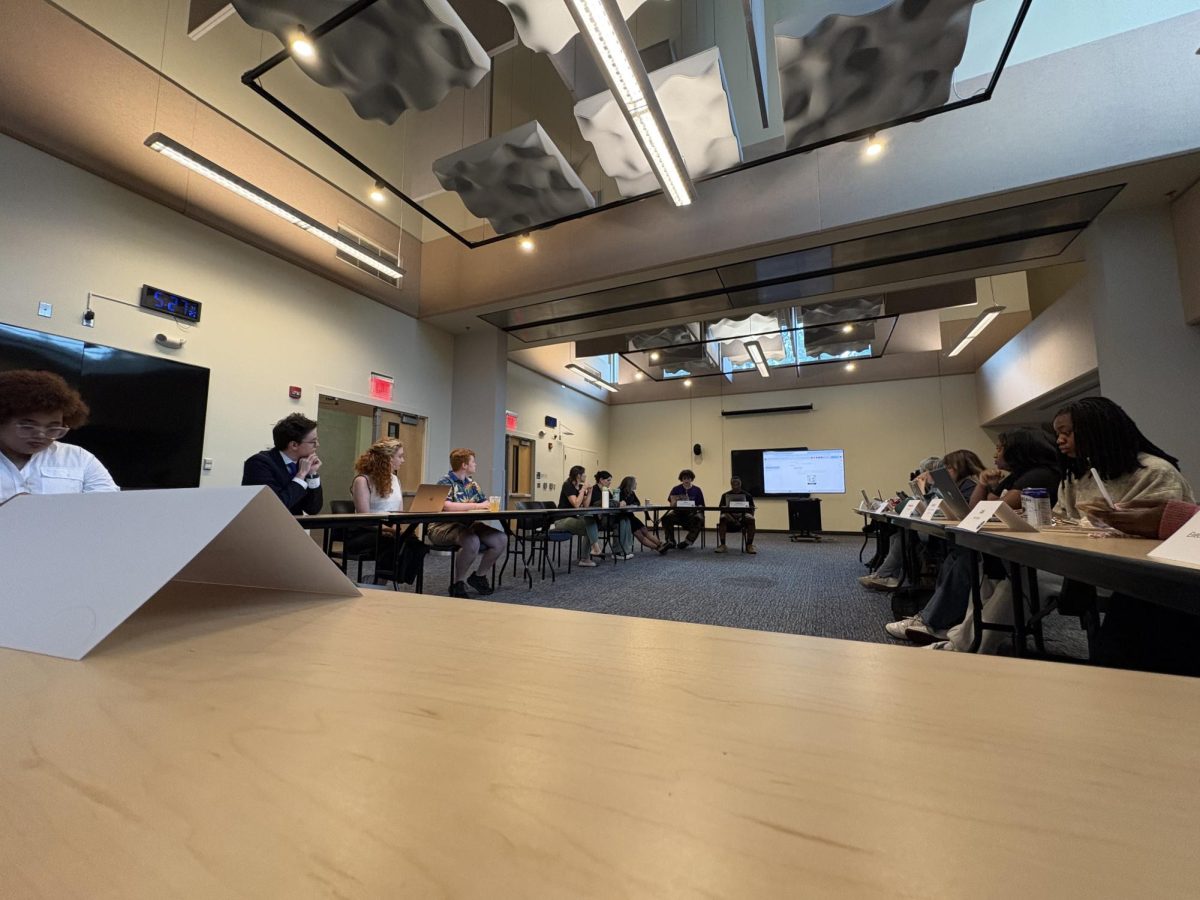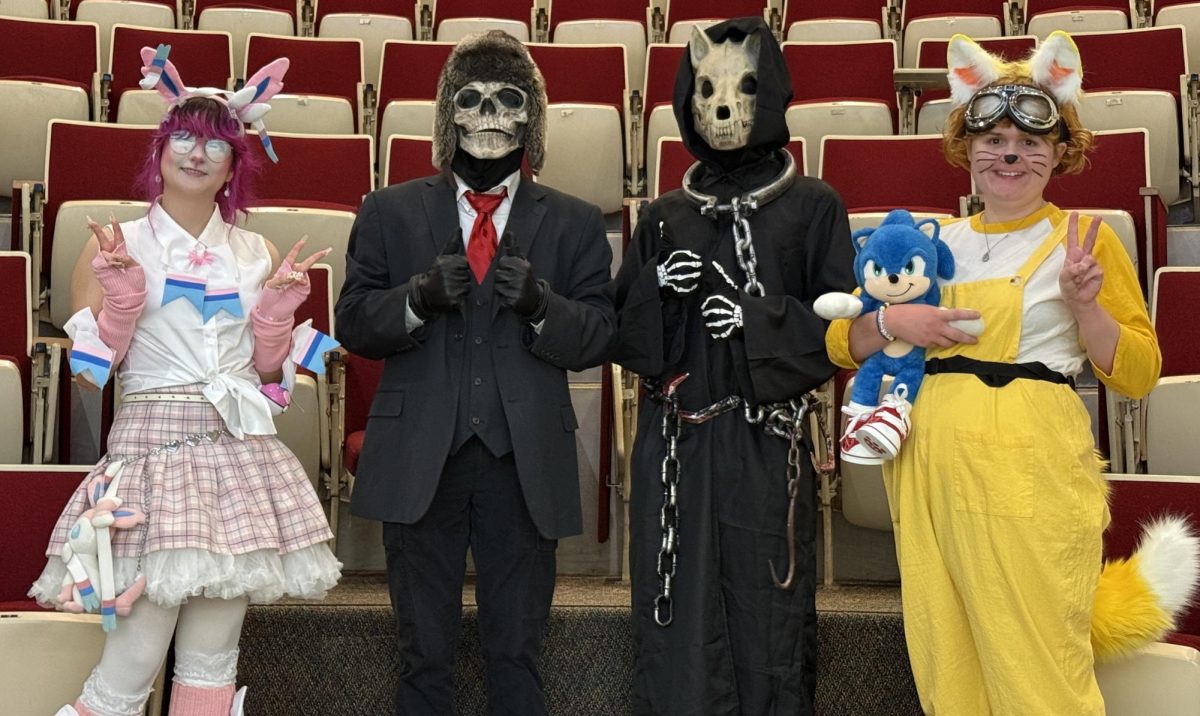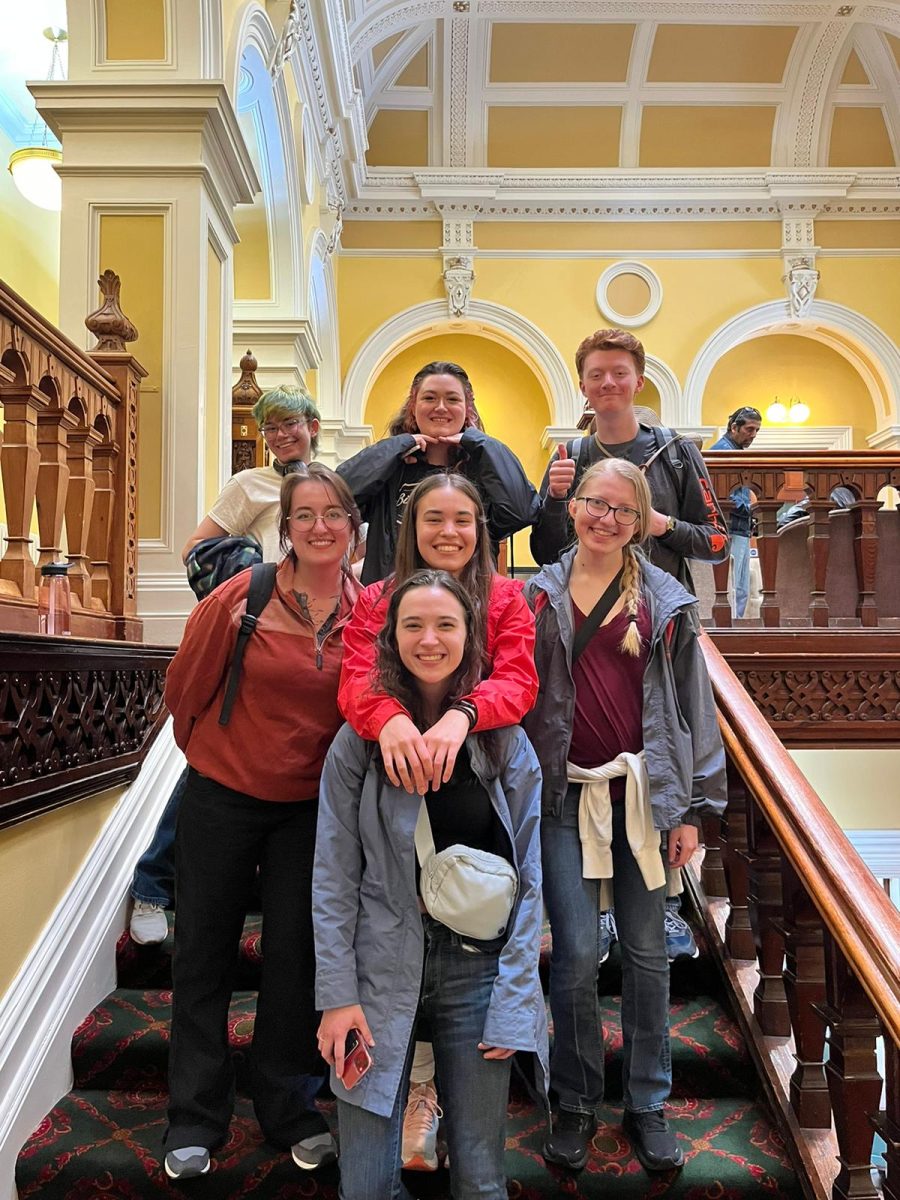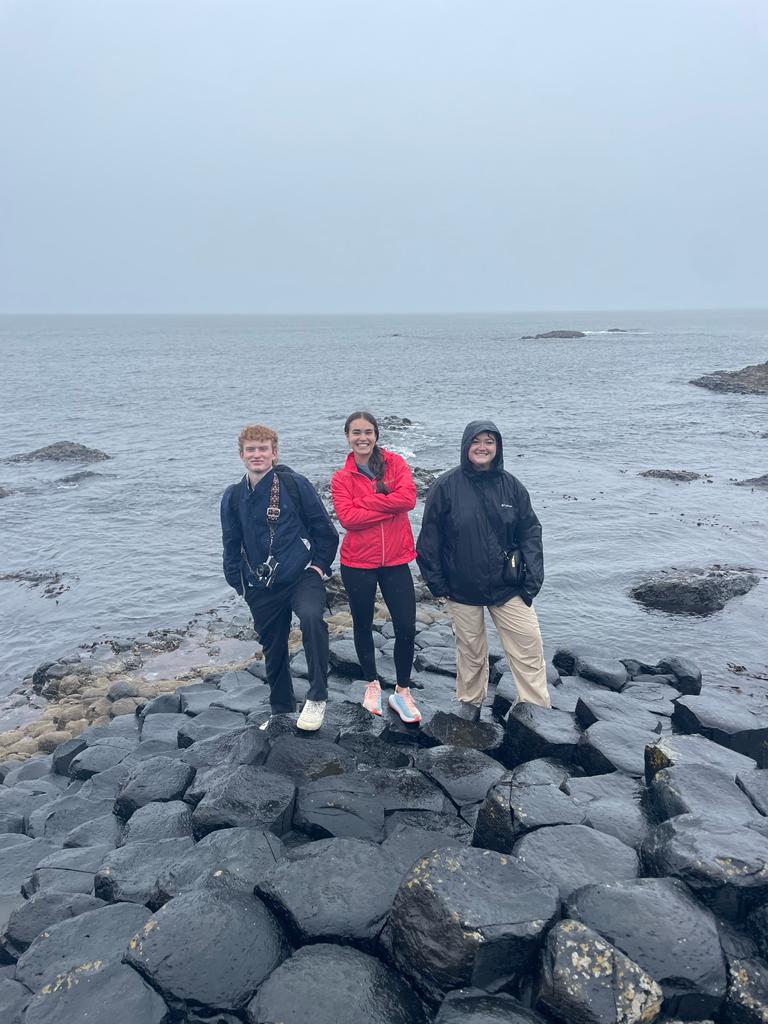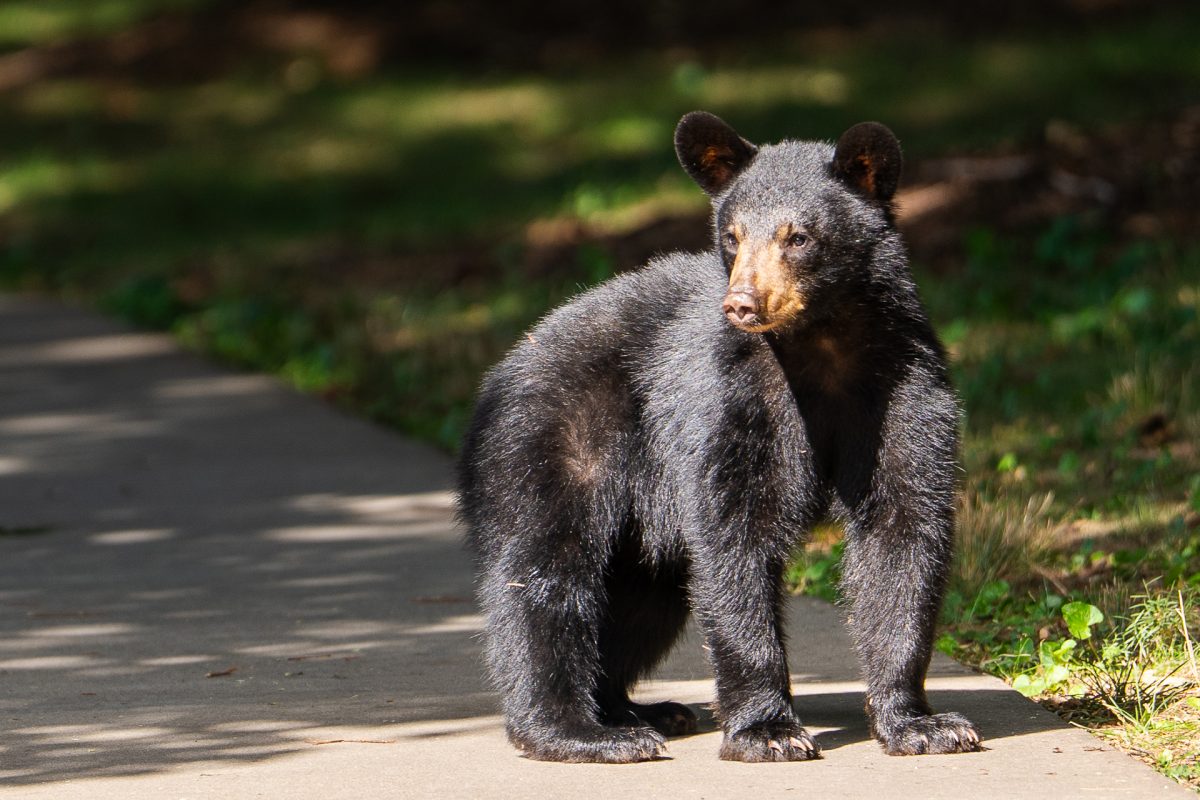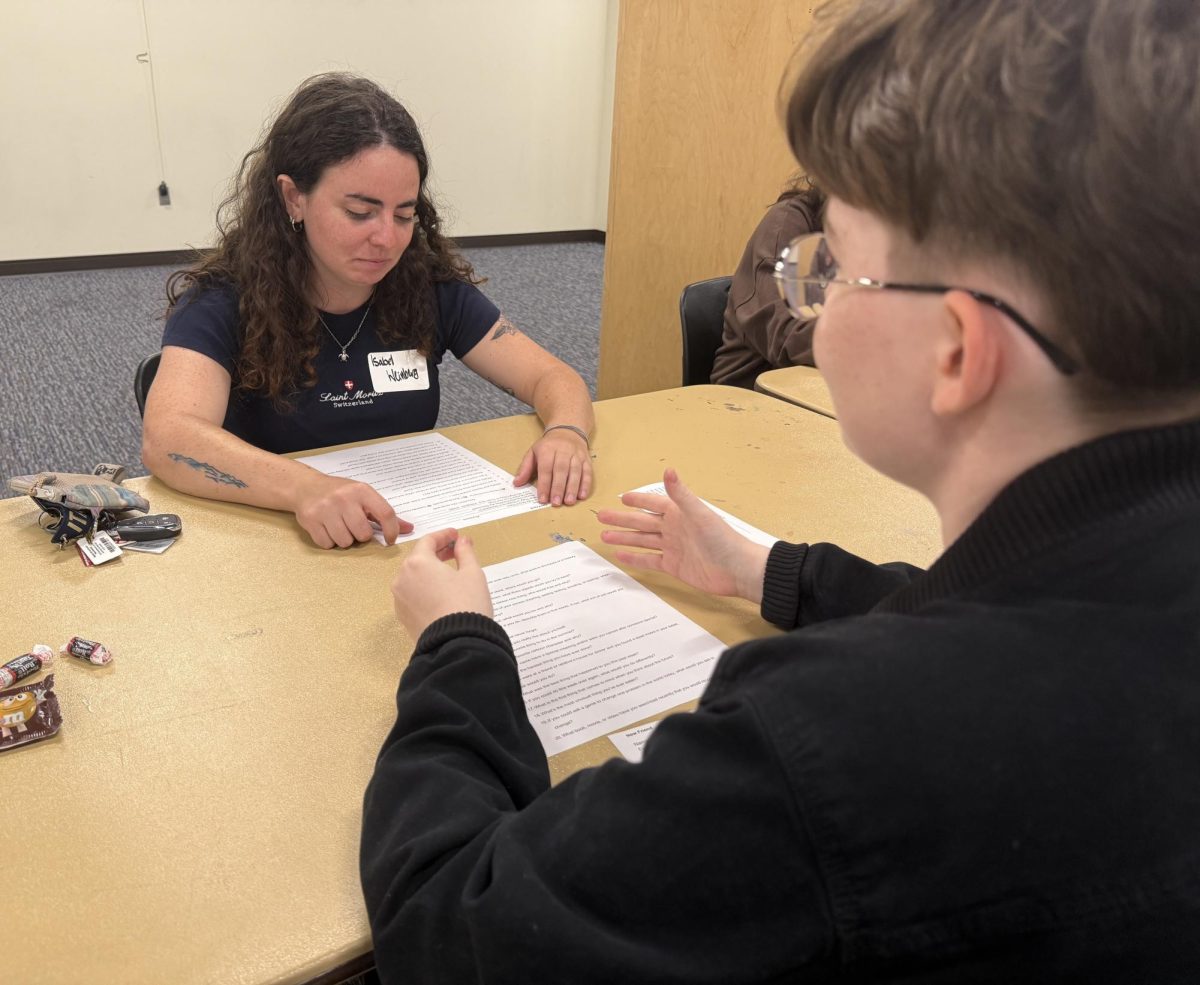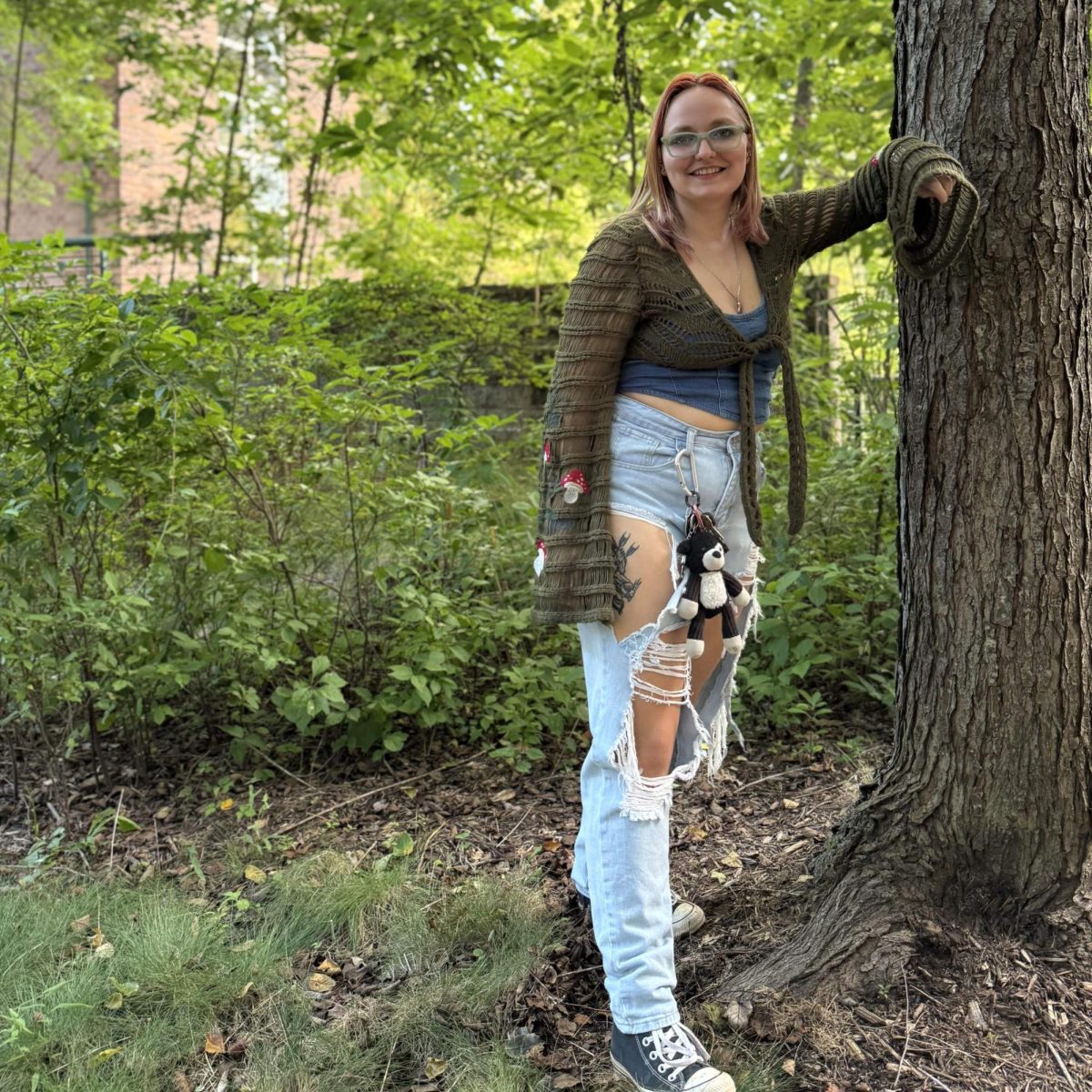This summer, I accompanied 13 other UNC Asheville students along with faculty on a mission to gain knowledge and life-altering experiences across the pond in Ireland.
“If you’re worried about traveling, the best advice I can give you is just to do it. You can read all you want about cathedrals, about cliffs, about whatever you’re interested in, but nothing compares to being there yourself,” said Lee Robinson, a 21-year-old senior from Raleigh studying printmaking.
The trip, led by faculty members Anne Slatton and Sarah Judson, from May 16 to June 2, allowed students to explore four cities scattered across Northern Ireland and the Republic.
“I really enjoyed the idea of having a structured travel experience, where I was incentivized to learn and engage deeply with the place and people around me. Having the faculty lead the trip allowed me to focus less on the details of accommodations or in-country travel and more on the experience itself,” said Forbes Fowler, a 21-year-old Asheville native and senior studying biology.
For many of the student voyagers, the two-and-a-half-week experience was their first time leaving the United States.
“I would say I wish the trip were longer but I would just have to move to Ireland for the trip to be long enough,” said Jo’El Longacre, a 26-year-old Asheville local and transfer student studying history education.
With the dedicated guidance of the professors, students expanded on humanities and art concepts, diversifying their understanding through experiencing firsthand the aftereffects of events otherwise only previously accessible from the likes of a lecture hall.
The trip was full of educational and exciting occurrences, including daily excursions outside the cities we were hosted by, enthusiastic locals willing to share their life stories in exchange for a listening ear and historic landmarks bearing the scars of the countries’ complicated pasts.
“It wasn’t wildly different from life in the United States, but there were still many things I was able to notice and reflect on. For instance, Irish people interact with their history more frequently and in a very different way than people in the U.S. tend to do,” Fowler said.
Robinson said she spent some of the initial days overseas, settling into each new town by exploring the streets near the hostel to grab lunch, receiving some one-on-one time with the city, and clearing her mind of travel stress.
“You could still see remnants of the Troubles everywhere.There were guard towers and fences, and stores would shutter at night, but you got to see people living and thriving despite that. The memory was still there and important, but it wasn’t stifling,” Robinson said.
According to the Imperial War Museum, the Troubles refer to a period of political unrest in Ireland between the Catholic nationalists and Protestant unionists. Much of this period resulted in violence and turmoil, primarily in Northern Ireland, where the scars are still visible throughout many communities.
“I feel like I was able to immerse myself in Irish culture while visiting museums and seeing the locals’ way of life throughout each city. Learning the country’s history before going helped put into perspective how much the people had fought for their freedom, and it was a beautiful thing to see them thriving,” said Ella Menzi, a 20-year-old environmental ecology student from Winston-Salem.
The first hostel the group stayed in was the Belfast International Youth Hostel. Kitty-corner to neighborhoods with Union Jack flags or stone walls adorned with murals reflecting worker’s rights imagery and Irish nationalist propaganda, the area is unequivocally a product of deeply proud Irish communities, risen from the ashes of hard times.
UNCA students were not the only ones milling about the subtly sloping streets of Belfast. The city overflowed with vitality from every angle.
“If I could go back in time, I’d probably try to talk to local people more. But I don’t know if I’d change much else,” Longacre said.
Many of us socialized with scholars around our age who attend the grand and historic Queen’s University down the road in a trendier part of town, making for a profoundly personal experience with the culture of Belfast and the people who bring the city to life.
“We were also incredibly fortunate to befriend a local, Tom, who offered to show us around the city and all his favorite spots. He and his friends helped us feel even more at home during our stay and always had great suggestions for hang-out spots,” said Sydnee Mull, a 21-year-old history student from Pennsylvania
In Belfast, we were placed in rooms with one to three roommates and a small attached room with a shower head sticking out of the wall operated by a button you had to play tag with to keep the water flowing. The beds were plush, although simple, and the windows held views of construction cranes, alleyways and brick buildings.
“The experience allowed me to make new friends by nature of the closeness of the group. I was able to learn about the academic and personal interests of my peers, always a worthwhile and enlightening experience,” Fowler said.
A variety of interests and specializations were present in our group of explorers. A ragtag group of individuals who most likely would have never crossed paths otherwise, one of us having a passion for learning about world religions, another for math equations and a few mass media.
“As someone with a deep love for history, the history within Dublin is rich. In their archeology museum especially, there is a large exhibition on the excavations done in bogs throughout the country, specifically of some of the many thousands of years old bodies that were discovered, surprisingly intact,” said Mull.
Even though most of us started as strangers, everyone supported each other throughout the trip.
“I was super nervous about going because I wasn’t really close with anyone, but I created friendships there and experiences that were once in a lifetime,” Menzi said.
Building each other up when we saw each other fall prey to homesickness and using the experiences we learned to grow as individuals forced us to learn about ourselves in a stereotypical phenomenon of group self-actualization that comes to pass when people are thrown into uncomfortable situations.
“I tend to struggle a lot in new places, and the trip showed me I was capable of a lot more than I thought,” Robinson said.
The friendly and sometimes chatty nature of the Irish tour guides, along with impressively even-tempered professors whom we definitely annoyed a time or two, rubbed off on many of us, painting the cities we explored a happy color even on overcast days.
“Belfast felt like a friendlier Baltimore to me. I arrived really disoriented and worried I wouldn’t be able to settle in. The hostel itself was a little bare bones. It was the first wet bathroom a lot of people had experienced, but the beds were comfy enough to plop down on after a long day. It felt the easiest to explore,” Robinson said.
In addition to inner city excursions, short jaunts were sprinkled throughout the time spent in Belfast. A few days in, the group loaded into a long bus to transport us to the Giants Causeway, a peninsula of hexagonal volcanic formations by the sea.
The countryside was peppered with sheep and poofs of orange floral bushes along the rolling hills stretching to the horizon, only broken up by dry stone walls that have existed for hundreds of years.
“The day trips to the Cliffs of Moher and the Aran Islands were one of my favorite specific events during our stay in Galway,” Mull said. “The island we visited, Inis Oirr, was quaint and beautiful. The people of the island are tight knit but very friendly to outsiders. If you ever go, find a local to show you around once you get there.”
A small group split off from the fray and ate together in a pub on the island. The food ranged from Irish dishes like Guinness sausage to chicken tenders with saltless fries.
Once the meal was finished, our group dispersed, some chatting with the locals and others hiking up to the castle on the hill overlooking the vast blue sea.
“I got a carriage ride from a man named Michael who had lived there his entire life. His horse was named Murphy. Murphy had the best bangs I’ve ever seen,” Robinson said.
Somehow, I found myself conversing with some outspoken livestock who moo-ed louder and louder with every step I took toward the panoramic peak of the little island village.
“While it’s very important to experience new places and travel, having a reason or specific goal can really be great. I went into Ireland knowing that I wanted to see the stained glass of Harry Clarke and walk the trails and mountains referenced by the likes of Yeats and Heaney,” Fowler said.
The itinerary allowed for freedom to take some learning into our own hands. Fowler said he often went on his own after the group activity was complete to find and explore different places that would eventually find a home in his final project, Chasing the Celtic Twilight, an online collection of poetry and daily accounts inspired by Yeats.
“The remnants of the past were everywhere, from the towering church that held a memorial to JFK to the King’s Head restaurant in the historic home of Charles I’s executioner to the bay where a Spanish armada had wrecked in the 1500s,” Longacre said.
The JFK mosaic, among other landmarks, was visited on a scavenger hunt of the city, which, toward the end, somehow loosely resembled a hundred-yard dash because of some friendly competition within the group.
“I was able to become better educated in a different style of historical engagement, which allowed me to better understand the context of my favorite Irish artists,” Fowler said.
Challenging each other and working together in the scavenger hunt created an environment conducive to making learning fun and accessible.
“In Ireland we spent a lot of time in cities which were super cool to experience and be there for a few days but my favorite parts of the trips were when we went on day trips through the countryside,” said Josie Sanfelici, a 20-year-old math student from Durham.
Throughout the journey, the students were encouraged to flaneur. According to the Rick Steves travel forum, flaneur is a French term meaning to observe those around, wander and live in the moment, making the experience of travel more genuine.
“The cliffs of Moher were incredible. I couldn’t believe that I was seeing them in person. The way the waves smash against them is hypnotic.” Robinson said. “I can only hope to come back as a milk cow grazing on the cliffs of Moher after I die.”
Some days ended with outings to the pub to enjoy traditional Irish music and rub elbows with locals delighting in Ireland’s favorite beverage, a pint of Guinness.
“Going out with the group for drinks and dinner in the evenings was definitely a highlight of the trip, though the few times we held group dinners at our apartments on campus in Galway were quite memorable too,” Mull said. “I think that camaraderie really made the trip special, even when all we were doing was sitting around on couch cushions eating teriyaki rice bowls and fruit crumble.”
The accommodations in Galway were apartment-style, outfitted with kitchens, and each student had a room to themselves. There was not one day spent entirely alone; many nights, we would gather in one of our living rooms, chatting about the day’s events and what tomorrow would bring.
“I think travel is a very important thing to do, as it perhaps lends me the most perspective on my own life. It reminds me to stay humble and curious about other ways of living. It inspires me to change little things about my life which can have a big impact later on, and it of course lends immense aesthetic knowledge which helps me shape my personal tastes,” Fowler said.
Each day shaped our perspectives of ourselves and the world around us.
“I learned that I can let myself go and not always be in control of situations, just to live a little and have fun with life,” Menzi said. “If there were any more like how the professors on our Ireland trip ran it, I think it would be fun to experience more world cultures and see what different countries have to offer.”
This trip opened the doors to many who had never had the opportunity to study abroad, leaving room for a new love of travel to blossom.
“I left Ireland feeling more independent and comfortable with travel itself. I also learned that community made travel better even for an introvert like me. Whether that was community with my peers or community with strangers at restaurants and tour buses,” Longacre said.
The hostel In Dublin was called Jacobs Inn. The rooms contained two bathrooms with one shower and stacks of sleeping pods resembling square shoe cubbies.
Robinson said the pods were utterly sweltering and horrible for noise protection. Still, the atmosphere lent to a summer camp-like vibe.
“As its capital city, Dublin was massive. There were so many people and so many places to see and to go eat. The hostel we stayed in with 10 people in one room brought me closer to the others who were on the trip with us, and we got to bond with our professors and fun events such as musical bingo night,” Menzi said.
On the days in Dublin, a few of us formed something akin to a book club and would chat for hours about what we were reading, bonding over a love of fictional men.
“We visited Blarney castle and I did get to kiss the stone. Inside it felt like a McDonald’s play place. I don’t know how else to describe it, with the cramped rooms and the spiral staircases. Impeccable experience,” Robinson said.
The weather at Blarney Castle was perfect. The sun shone high above, not a cloud in sight, a cool breeze caressing our skin. A few hours were allotted on the grounds, and we all took part in leisurely walks through the castle gardens.
“Cork was definitely my favorite city that we were in. I loved how beautiful the campus of the university was and our accommodations were fantastic. Cork had a wonderful English market in the city center which had some of the freshest and best food I had on the entire trip,” Fowler said. “My favorite part of Cork was St. Patricks hill at sunset.”
The quaint seaside town of Kinsale, with chocolate shops and sailboats in its harbor, along with the rainbow storefronts and breathtaking cathedral of Cobh, moved Cork to number one on many of the student’s lists of favorite destinations.
“Feel free to look silly. Being in a new environment allows you to feel wonder in a whole new way and exposes your ignorance. Feel comfortable asking questions and apologizing when you forget or don’t even know your manners. Don’t feel embarrassed that you may find the trees in another country more beautiful than you usually find trees. Just bring that enthusiasm home with you,” Longacre said.
A primary challenge for some students studying abroad is being truly away from those they love for the first time. Many of us have the experience of going away to college and finding our own paths. Still, the reality of being around the world from familiarity can be a whole new, terrifying experience.
Once the reality settles in that the plane is heading in the opposite direction from the people they love, it can manifest as a lingering sadness behind the remarkable experiences throughout the semester.
“Despite some rough patches throughout the trip with feelings of loneliness, my time in Ireland was well spent and the places I visited were beautiful,” Mull said.
Mull said she had to try and live life to the fullest, make the most of the opportunities given to her, and not be afraid of stepping outside of her comfort zone because it would all be worth it in the end.
“I would love another opportunity to study abroad because this trip helped me grow and learn how to do things more on my own. I have always traveled with my parents so going abroad alone was scary at first but doing it and having so much fun made me excited to continue traveling,” Sanfelici said.
Everyone boarded the plane back to the States differently than we had upon arrival. Although there were a few bumps in the road, we learned, cried, laughed and connected in a deeper way than any of us could have imagined, making the experience worthwhile and unforgettable.
“Studying abroad engages all of your senses in the learning process. I did not just see a picture of Ireland, I heard the pubs, I felt the grass and smelled the sheep. I have met Ireland in person,” Longacre said.














